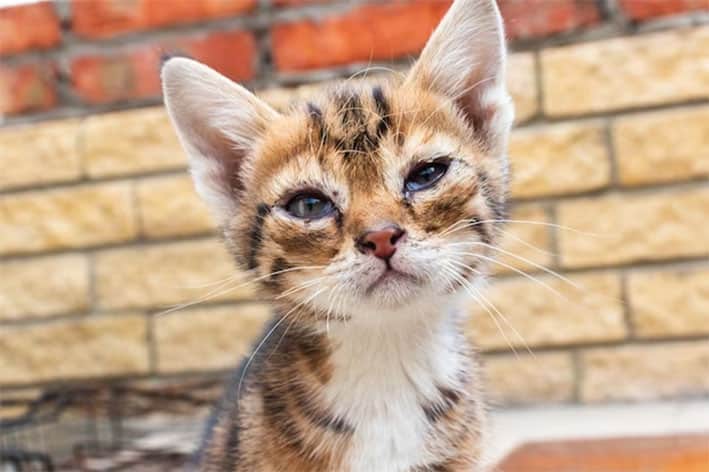International news outlets on Wednesday were reporting on the decimation of cats in Cyprus from a feline coronavirus strain, saying that 300,000 cats had died.
The Daily Mail, The Telegraph, and France 24, all ran headlines, cited the figure and said Cyprus is becoming an ‘island of dead cats’ but the man they quoted claiming this astoundingly high number said he had been misunderstood.
Vice president of the NGO Voice for Animals, Dinos Agiomammitis, who was mentioned by France 24 as the source for the 300,000 number, said that his words had been lost in translation.
“I don’t want people to panic, cats are not about to go extinct from the island,” Agiomammitis said.
He explained that there is a very rough and hypothetical estimate that there are 1 million cats on the island. Extrapolating from there, if a mortality rate of 20-30 per cent of infected animals dying is applied, the resulting number is 300,000, he told CyBC’s morning programme.
The director of the Veterinary Services Charalmbos Pipis told CyBC that they cannot confirm the number of 300,000 dead cats from feline infectious peritonitis.
“These data are based on estimations, since there is not an official recorded number of the cats in Cyprus,” he said.
Speaking to the Cyprus Mail, head of the Animal Party Kyriacos Kyriacou, said it was unfortunate that the feline coronavirus story had been taken up so widely in other countries but not on the island.
Asked whether any data was available to confirm the reports and whether numbers were exaggerated, Kyriacou told CM that this was the crux of the problem—the absence of data.
“For ten years, since 2014, we have been pushing for the creation of the position commissioner for animal rights and welfare,” Kyriacou said.
“In February we had a meeting with the president, who agreed that this was necessary in a European state. Until such a commission exists, the services that deal with animals–the veterinary, the game service, the agriculture department, the animal police—will be hamstrung, unable to act in a coordinated manner and will be ineffective,” Kyriacou said.
As for feline infectious peritonitis (FIP) decimating the cat population, Kyriacou stated that over a month ago the animal party had sent an official letter urging for medicines to be imported to cope with the evident feline pandemic.
He clarified, however, that any data being collected, is based on deaths reported by domestic cat owners, private vets, and animal charities, mostly anecdotally, since there is no systematic data collection by the state–or any other body–of the actual numbers of feral cats.
“People are just quoting numbers at this point to suit their particular purpose,” Kyriacou said. “If an animal welfare committee existed we could start to rectify the problem of unsubstantiated information and public policies based on it.”
Meanwhile, however, concerned owners of domestic cats are witnessing cases of their pets dying from FIP. From January to May there have been 200 such confirmed cases of cat deaths, according to Agiomammitis.
To limit the spread of the virus, two treatment options exist. One is molnupiravir, an anti-Covid injectable, which officials said could not be approved for use in animals in Cyprus.
Another method is the antiviral tablet GS-441524, which is approved for use in animals in Britain and for import into Cyprus with restrictions. However, its cost is prohibitive, ranging from €3,000 to €7,000 per cat.
A vaccination also exists, Kyriacou told CM, but it is a non-starter as it requires the animal to be injected too many times.
As a result of the lack of therapeutic options on the island, Kyriacou went on to detail, a black market had developed among desperate cat lovers, of medicines imported from countries such as Russia and India.
“Even then, the tablets cost €200 to €300 a pop, and their outcome is variable,” Kyriacou said.
FIP, caused by a feline coronavirus (FCoV), is one of the most infectious and fatal diseases for cats, with those under two years old being most vulnerable.
Over two months ago the veterinary services appealed to the health ministry for soon-to-expire preparations used in humans, to be made available for cats but his was rejected.
A survey by the veterinary association among its members showed that in 2021 there were about 100 suspected cases of FIP, of which 36 were confirmed by laboratory methods. In 2022 there were about 220 of which 100 were confirmed.
So far, in 2023, there have been over 500 suspected cases of which 200 were confirmed by May.
Experts clarified the disease cannot be transmitted from animals to humans.







Click here to change your cookie preferences